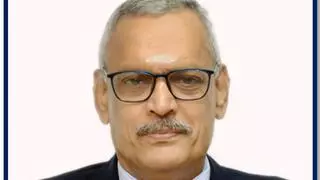New Delhi, May 16 The University Grants Commission (UGC) is working on preparing the regulations to facilitate foreign universities to open their campuses in India and a five-member committee has already been formed. Deliberations regarding the matter are in final stages.
The UGC is a statutory body set up by the Department of Higher Education, Union Ministry of Education, in accordance to the UGC Act 1956 and is charged with coordination, determination and maintenance of standards of higher education.
“We have already been approached by a few foreign institutions to open their campuses in India. This will help bring word class pedagogy to India. Indian students do not have to go abroad for higher studies incurring huge expenditure,” M Jagadesh Kumar, Chairperson, UGC, said.
With foreign universities opening their campuses here, it will also reduce a part of the outflow of foreign exchange, which stands at about $ 25 billion currently, he added.
Foreign universities will be allowed to establish their campuses in GIFT city to offer post graduate programmes and executive programmes in Financial services and technology. The functioning of these campuses, though will be free from domestic regulators such as UGC.
Explores collaboration
“However UGC will explore the possibility of Indian Universities collaborating with these foreign university campuses located in GIFT city. This will open new opportunities for Indian Universities for collaborative research in emerging areas such as finance and technology. To facilitate such collaborations, UGC will work with Indian universities and provide the necessary assistance,” Kumar said.
The Centre, it may be recalled, is already working on regulatory framework whereby Indian universities can set up/open their campuses abroad.
Headed by Dr K. Radhakrishnan, Chairman, IIT Council, the committee has prepared the recommendations for opening offshore campuses of Indian higher educational institutions; but regulatory support is required to make this a possibility. “We hope that the regulations will be in place in due course of time,” Kumar said.
Currently about 50,000 international students from about 165 countries study in India. Two thirds of these students come from five countries. On the other hand, nearly 9,00,000 students from India are studying abroad.
“We need to reverse this. We must attract more foreign students to India while we provide international quality education to Indian students by letting foreign universities open their campuses in India,” he said.
New PhD norms
Another step taken by UGC towards internationalisation of Indian higher education include relaxation of PhD norms.
Foreign students were admitted in PhD programmes of Indian universities “only if vacant positions are available after trying to offer all the seats to Indian student”. However, new norms proposed, include creating “supernumerary” (present in excess of normal requirement) PhD positions.
Under these norms, each faculty member will be able to take two international PhD students under their guidance over and above the current limit prescribed by the regulations.
“This should help us admit many international PhD students without affecting our reservation policies,” Kumar added.
Dual Degrees
According to the UGC Chairperson, the authority is planning to have a meeting with foreign Ambassadors and Heads of Foreign Mission in India to discuss the new regulations.
The twinning, joint and dual degree programs allow students to take course credits from foreign universities. Indian universities can bring international students into their campuses.
“UGC has written to several eligible foreign universities informing them about the new regulations. We have also sent them a list of eligible Indian universities with whom the MoUs can be signed. We have informed our Indian Ambassadors/Heads of Indian Missions abroad and Foreign Ambassadors/ Heads of Foreign Missions in India and requested them to pursue with universities in their respective countries,” Kumar said.
Foreign students studying in India can also pursue double degrees.








Comments
Comments have to be in English, and in full sentences. They cannot be abusive or personal. Please abide by our community guidelines for posting your comments.
We have migrated to a new commenting platform. If you are already a registered user of TheHindu Businessline and logged in, you may continue to engage with our articles. If you do not have an account please register and login to post comments. Users can access their older comments by logging into their accounts on Vuukle.